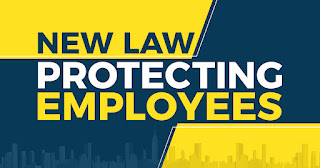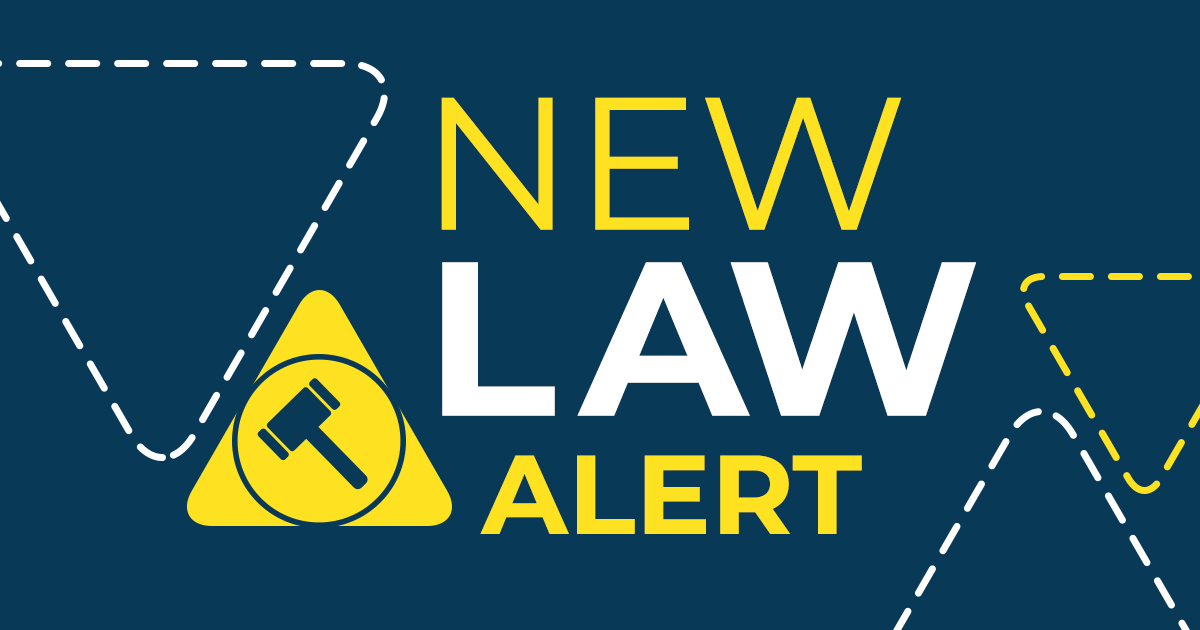FLOOD INSURANCE IS AVAILABLE TO RENTERS THROUGH THE FEDERALEMERGENCY MANAGEMENT AGENCY'S (FEMA'S) NATIONAL FLOOD INSURANCE PROGRAM (NFIP) TO COVER YOUR PERSONAL PROPERTY AND CONTENTS IN THE EVENT OF A FLOOD. A STANDARD RENTER'S INSURANCE POLICY DOES NOT TYPICALLY COVER FLOOD DAMAGE. YOU ARE ENCOURAGED TO EXAMINE YOUR POLICY TO DETERMINE WHETHER YOU ARE COVERED.
Wednesday, December 28, 2022
Throw Out Your Old Residential Lease Forms - New Law Alert
Major Discrimination Update - NYS Human Rights Law Expanded to Prohibit Discrimination on Citizenship / Immigration Status
Thursday, December 22, 2022
All NYS Employers Must Disclose Compensation to Applicants and Employees - Equal Pay Lawsuit Coming
Wednesday, December 21, 2022
FOX LiveNOW: Attorney Andrew Lieb on Jan 6 Committee, Charges Against Trump
Tuesday, December 20, 2022
FOX 5 NY: Attorney Andrew Lieb Talks About The January 6 Panel Recommendations and Charges Against Donald Trump
January 6 Panel Recommends Criminal Charges Against Donald Trump. Legal Political Analysis With Attorney Andrew Lieb on Fox 5 NY.
CBS NY: January 6 Panel Recommends Criminal Charges Against Donald Trump. Analysis W/ Attorney Andrew Lieb
Attorney Andrew Lieb joined CBS NY to explain that the referrals from the Jan 6 Committee can undercut the #DOJ by making any charges seem politically motivated even if they are not.
Attorney Andrew Lieb Offers New CLE for Attorneys: Proving Emotional Distress Damages in a Discrimination Case
Proving Emotional Distress Damages in a Discrimination Case
Discrimination law is top of mind for most attorneys and businesses throughout the country. We all like to discuss the latest news headlines and debate our culture wars to determine who is right and wrong, but in reality, that discussion misses the point. The real question is what is the cost of being wrong. For example, while pecuniary damages (such as back pay and front pay) are known and tangible, have you considered non-pecuniary damages in your case evaluation? In discrimination law, the largest category of damages is emotional distress, which can vary depending on the proof you have and your ability to prove it in court. In this course, Andrew Lieb will teach you how to gather and prove these intangible damages, which will make or break your discrimination case.
FOX LiveNOW: Attorney Andrew Lieb on Jan 6 Committee, Charges Against Trump
Legal Political Analysis with Attorney Andrew Lieb on LiveNOW from FOX
Monday, December 19, 2022
New York Tenants Have New Tool When Landlords Fail to Fix Unsafe Conditions
Sketchy landlords beware!
New York's Real Property Actions and Proceedings Law Article 7-C has been added by A3241 to give tenants and municipalities a new tool in their arsenal to address persistent unsafe conditions that are neglected by their landlords.
Applicable
in both residential and commercial mixed use properties, the new law, which is immediately effective, allows for
receivership proceedings where a landlord has failed to remedy “conditions
dangerous to life, health, or safety.” Basically, this means a court may
appoint an independent “receiver” who is empowered to manage and redirect rent
deposits towards fixing an issue that a landlord has neglected to sufficiently
address.
However, what's interesting is the flip side of the law. It's yet another reminder that tenants should not unilaterally withhold rent or make repairs, outside of their rights in their specific lease, when there are habitability issues at the premises. Instead, they should follow the law and have their rental money deposited with the Court. Doing it otherwise is technically a grounds for eviction. Simple stated, there is a procedure when a landlord doesn't fix property and you, as a tenant, can't decide to just not pay when it's not being fixed.
This procedure of depositing rent into Court and having a receiver appointed was formerly available only in New York City, but now applies statewide.
Friday, December 16, 2022
Limited Scope Litigation Representation Coming to NYS Today - New Law
Have you ever wanted to hire an attorney for a specific task in litigation and to do the rest of the case by yourself?
What about to oppose a motion? Or, to draft a complaint? Or, to respond to discovery? Or, to argue in court?
What about being frustrated when consulting with attorneys who will only take your case on an hourly basis because they will be stuck as your attorney until the end and have no idea how long the litigation will go; wouldn't it be better to only have to pay a flat fee for specific task?
The day of limited scope appearances in civil litigation has come in New York State.
Today, Governor Hochul signed A04938 into law and it's immediately effective. The bill enacts CPLR 321(d), which is titled "Limited Scope Appearance," and reads as follows:
1. An attorney may appear on behalf of a party in a civil action or proceeding for limited purposes. Whenever an attorney appears for limited purposes, a notice of limited scope appearance shall be filed in addition to any self-represented appearance that the party may have already filed with the court. The notice of limited scope appearance shall be signed by the attorney entering the limited scope appearance and shall define the purposes for which the attorney is appearing. Upon such filing, and unless otherwise directed by the court, the attorney shall be entitled to appear for the defined purposes.
2. Unless otherwise directed by the court upon a finding of extraordinary circumstances and for good cause shown, upon completion of the purposes for which the attorney has filed a limited scope appearance, the attorney shall file a notice of completion of limited scope appearance which shall constitute the attorney's withdrawal from the action or proceeding.
Now, CPLR 321(d) is not a license for a free-for-all. Instead, this new law is subject to the Rules of Professional Conduct, which requires your informed consent before a limited scope representation is established, by way of Rule 1.2, Comment 6A, which provides:
In obtaining consent from the client, the lawyer must adequately disclose the limitations on the scope of the engagement and the matters that will be excluded. In addition, the lawyer must disclose the reasonably foreseeable consequences of the limitation. In making such disclosure, the lawyer should explain that if the lawyer or the client determines during the representation that additional services outside the limited scope specified in the engagement are necessary or advisable to represent the client adequately, then the client may need to retain separate counsel, which could result in delay, additional expense, and complications.
Nonetheless, limited scope representation is expressly permissible under Rule 1.16(c)(11), which permits the termination of representation when it is allowable by "other law."
As a result, Lieb at Law welcomes you to the age of unbundled legal services in New York State litigation.
*Attorney Advertising






